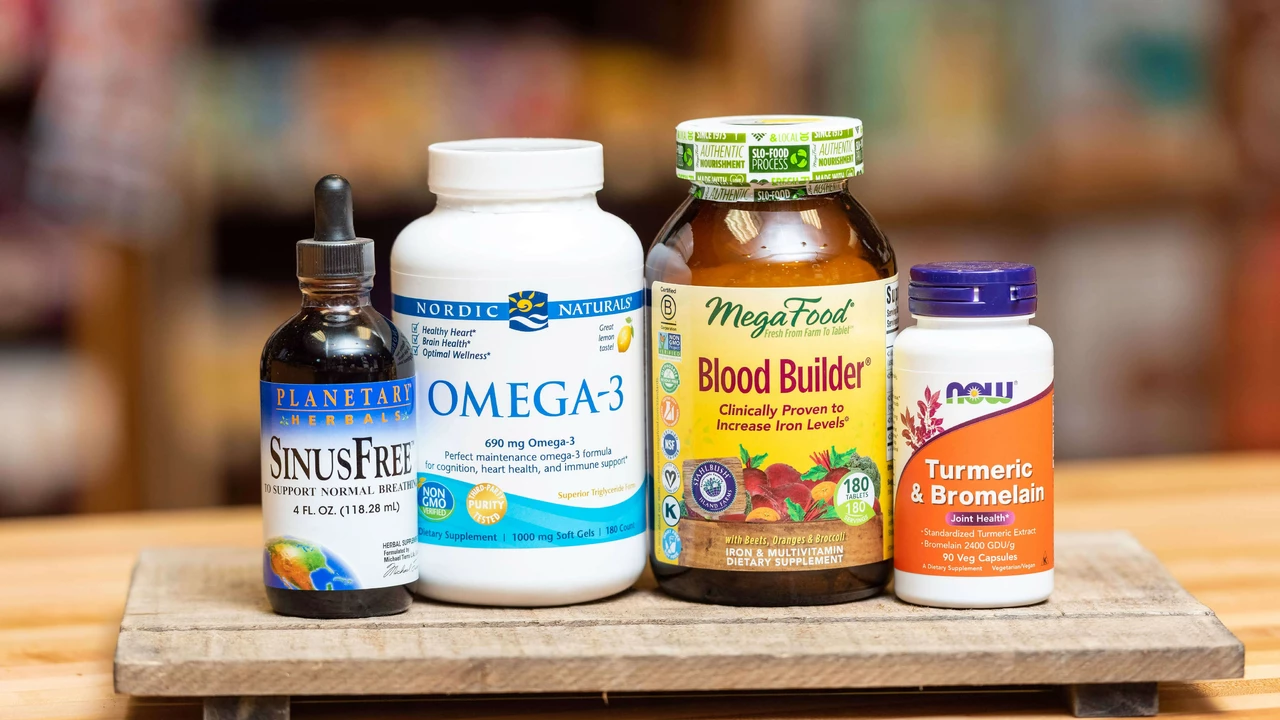Dietary supplementation: simple, safe, useful choices
Looking for supplements that actually help — not hype? Good. Supplements can add real benefits (better sleep, recovery, energy) when used right. This page groups practical guides from SafeMeds4All so you can pick what matters, avoid risks, and know where to read more.
What works and when to try it
Start with one clear goal: sleep, muscle recovery, joint support, libido, or general nutrition. For example, glycine is a short, well-studied amino acid that many people use for sleep and muscle recovery. Typical bedtime doses reported practically are about 3 grams; users say it calms sleep onset without heavy grogginess. If sleep is your issue, the Glycine Supplement Benefits article on this site walks through how it may help and how people dose it.
For libido or erectile concerns, some people try over-the-counter ED supplements or devices before prescription drugs. Our Non-Prescription Viagra Alternatives article looks at what ingredients have decent evidence (like L-arginine in some cases) and what to avoid. Remember: OTC options can help mild cases, but they aren’t a replacement for a medical check-up when problems are persistent.
Safety, interactions, and buying tips
Never assume “natural” means safe. Supplements can interact with prescription meds. For instance, if you take statins or antidepressants, check for interactions or additive side effects — our statins and sleep piece explains how medication can affect sleep patterns. A quick rule: ask your doctor or pharmacist about interactions, especially if you’re on blood thinners, heart meds, psychiatric drugs, or immunosuppressants.
Buy smart. Use sources with clear contact info, verified reviews, and transparent ingredient lists. We review online pharmacy options and buying tips across several articles — read those before ordering foreign or unbranded products. Avoid sellers that promise miracle cures, hide ingredient amounts, or pressure you to buy immediately.
Check labels for dose, purity, and third-party testing (NSF, USP, or ConsumerLab are good signs). If a product claims to treat a disease, consider it a red flag — supplements support health but aren’t substitutes for prescribed medicine.
Short practical checklist before you start a supplement:
- Define one clear goal (sleep, recovery, nutrition).
- Research one reputable guide or study — start with our linked articles (Glycine, OTC ED, etc.).
- Check interactions with current meds via your pharmacist or doctor.
- Buy a tested brand, check dose and purity, start low and monitor effects.
- Stop and consult a clinician if you notice unusual symptoms.
Want tailored suggestions? Read the full articles linked on this tag page, or ask a pharmacist about your specific meds and health goals. A small, sensible change can make supplements work for you — without the guesswork.

Cypress: Your Key to Optimal Health and Wellness Through Dietary Supplementation
Well folks, buckle in because we're about to dive into the magical world of Cypress, a superhero in the realm of dietary supplements. I know, I know, diet talk can feel like a yawn festival but believe me, Cypress is like the blockbuster movie you never knew you needed. Packed with health-boosting properties, this dynamite of a supplement is your one-way ticket to optimal health and wellness. It's got everything from anti-inflammatory benefits to antioxidant power and let's just say, Cypress is the secret ingredient your body's been crying out for. So, if you're ready to revamp your health game, Cypress is stepping up to the plate and boy, it's ready to hit a home run!
